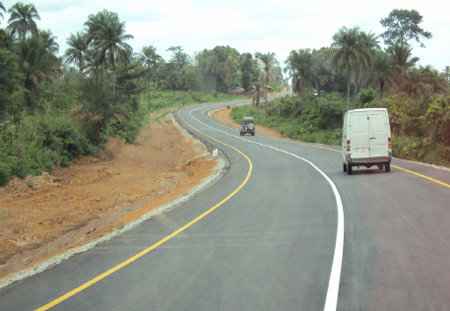
Sierra Leone Telegraph: 21 June 2012:
The growing call for more and better decentralised public services in Sierra Leone has received a financial boost. The European Union has released $6 million it had approved in December last year, in support of the World Bank’s funded project costing $32 million.
The government has significantly stepped up its transfer of funds to Local Councils. But with rising poverty and the continuing pressure on government’s finances and competing public spending priorities, the delivery of local services continues to face huge squeeze.
Most local councils in the country are struggling to respond to the ever rising demand for vital services, such as education, health, water supply and management of solid waste.
Successive central governments in Freetown have been blamed for the inertia and slow pace of local council reform, which is needed to build and strengthen the capacities of councils to plan and deliver basic services.
The delivery of the government’s free health care programme in local communities across the country has been patchy.
Most provincial towns and cities are without clean, safe drinking water. The electricity power needed to operate water pumps is not available.
But the World Bank in partnership with the European Union are trying to make life a lot more comfortable for local communities.
Many in Sierra Leone are blaming the government for its failure to respond positively in tackling rising poverty in the country.
The government says that by prioritising investment in improving the country’s road infrastructure, the economy will grow, thus creating much needed jobs that could tackle poverty.
But civil society groups and the opposition political parties are arguing that by cutting an average 3% across the budgets of education, health and social services, the government is putting at risk and eroding the ability of local councils and service providers deliver vital services.
The World Bank says that the $6 million provided by the European Union (EU) last week, is an additional support to the Government of Sierra Leone.
This funding support is aimed at scaling up decentralised delivery of basic services, towards which, the World Bank had approved US$26 million in December last year.
“The European Union has been a long-standing supporter of the decentralisation efforts in Sierra Leone. I am pleased that we can now build on the achieved successes in capacitating local government by providing additional support focusing on service delivery. I am convinced that through this programme, the quality of services in the key areas of water, health, education and waste management will significantly improve to the benefit of the citizens of Sierra Leone,” said Jean-Pierre Reymondat-Commoy – Head of the European Union Delegation to Sierra Leone.
“Our partnership with the EU through DSDP now provides the framework for multi-donor coordination” said World Bank Country Manager Vijay Pillai, “and this harmonized assistance can go a long way in serving as a platform for donor support for decentralization in Sierra Leone”
Some of the successes highlighted by the World Bank in delivering Sierra Leone’s decentralization effort, include putting in place a transparent and fair system of transferring funds to Local Councils, holding of regular elections, progress in devolving functions closer to the people, and innovative ways of helping them hold service providers accountable.
The Bank says that together with its earlier contribution of $26 million, the EU grant builds on gains from the project’s first phase, which enabled Local Councils to fulfil core devolved functions.
It is also expected to pave the way for improved results in basic health, education, water supply and solid waste management across all 19 Local Councils in the country.
The program’s second phase is to run until December 2015. It will strengthen central and local government capacities to manage decentralized services, improve availability and predictability of central government funding to local councils, and strengthen the current fiscal transfer system between central and local governments.
Areas of support under DSDP-2 will include:
– US$24.3 million for grants to local councils to complement fiscal transfers under regular transfers through GoSL budgetary processes. Significant additional resources will thus be available for Councils to provide basic services.
– US$3 million for developing capacity and providing technical assistance to local councils and ministries, departments and agencies to carry out their core functions and provide guidance and oversight to local councils.
– US$4.1 million to support results and social accountability: This will empower local communities to hold their service providers accountable, with the aim of enhancing the quality of service delivery.
– US$1.2 million to support project implementation, financial management and coordination functions.
The World Bank says that the $6 million EU funding will go directly to local councils as grants.
It is regarded by the World Bank as a major component of the program, underscoring the EU’s continuing commitment to the decentralization agenda of the country.
The ministries of finance and economic development, local government & rural development and all 19 local councils are implementing the decentralisation program.

Be the first to comment